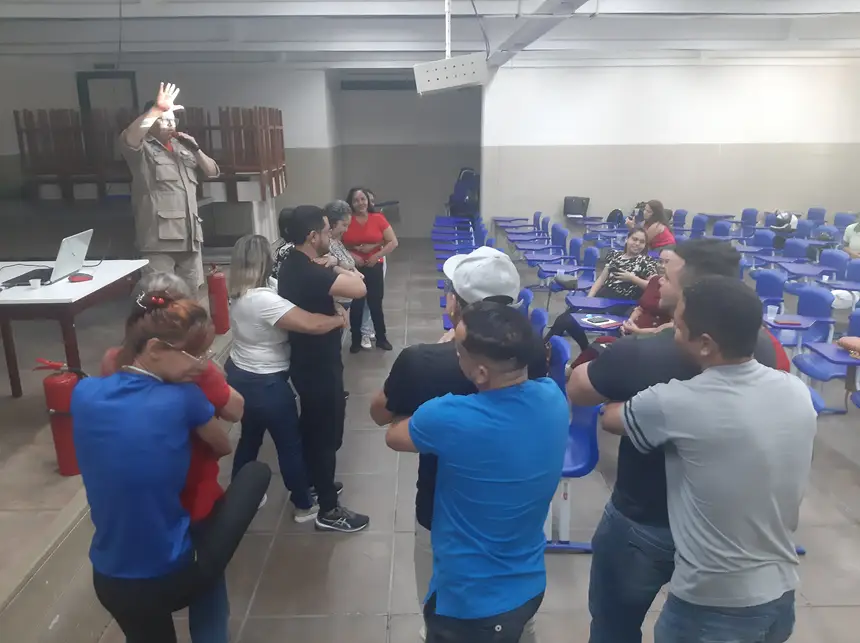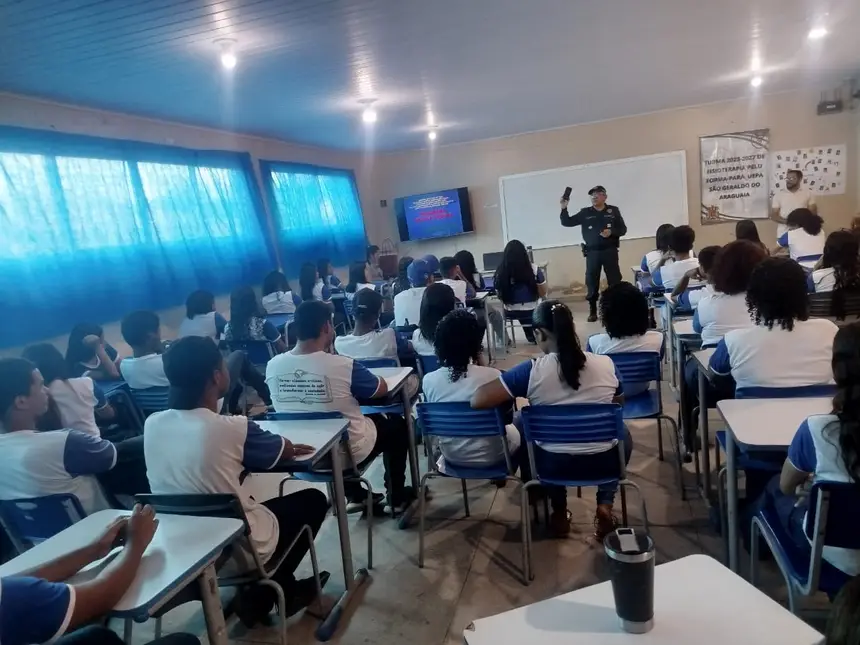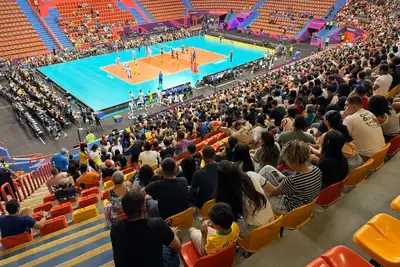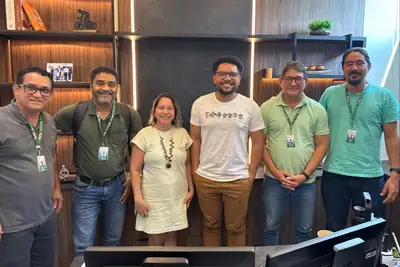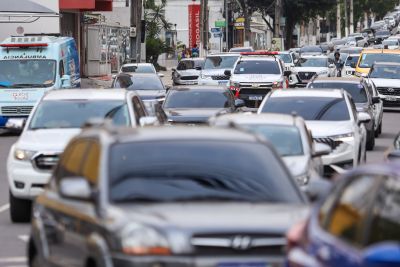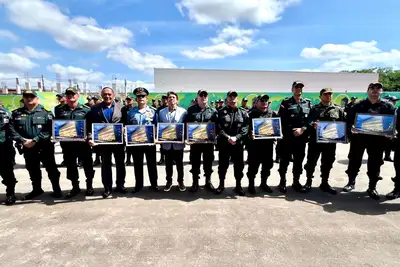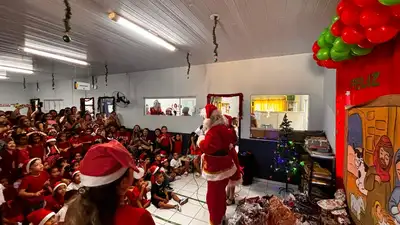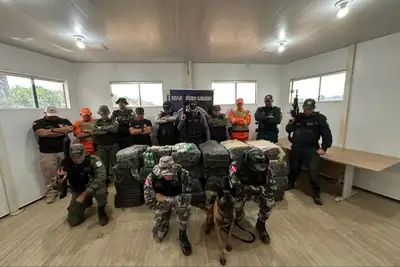State Government ensures more security in schools with the Safe School Program
Initiative promotes integrated actions for violence prevention and ensures police presence in public state education units
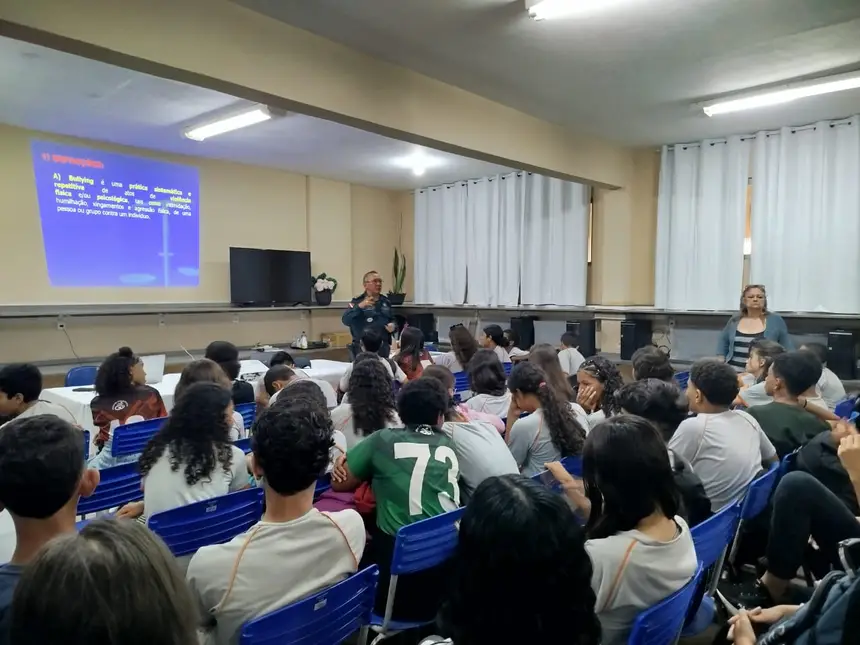
To reinforce the protection of the school community and prevent violence in public network units, the State Government, through the State Department of Education (Seduc), guarantees the 'Safe School' Program and strengthens the culture of peace in schools across all regions of Pará. The initiative ensures the presence of military police during school hours, aiming for more tranquility for students, teachers, and families.
Created in 2023, in partnership with the Military Police of Pará, the program strengthens pedagogical and coexistence actions developed by educational units, also reaching surrounding communities.
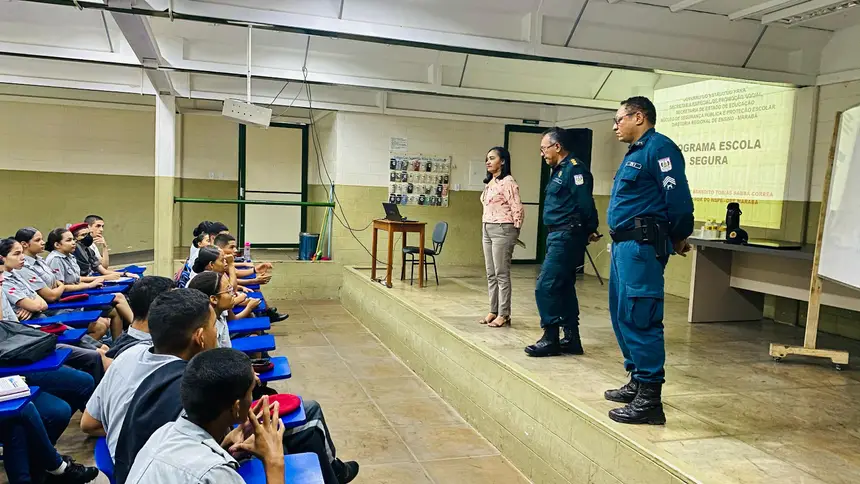
The program has multidisciplinary teams organized in Advisory Offices, the Public Safety and School Protection Center (Nuspe) - formed by 18 retired military police colonels, responsible for monitoring, planning, and guiding security actions. It also includes the Educational Coexistence Advisory (ACE) - composed of psychologists, educators, and social workers, who develop projects and activities promoting the culture of peace.
In addition to physical security, Nuspe promotes lectures, discussion groups, and guidance on topics such as prevention of illicit drug use, combating bullying, cyberbullying, and general safety guidelines.
“This work has been effective, reducing incidents in schools and ensuring the presence of pairs of uniformed military police, in addition to vehicle patrols,” highlighted Colonel PM RR Robinson Augusto Boulhosa Bezerra, head of Nuspe.
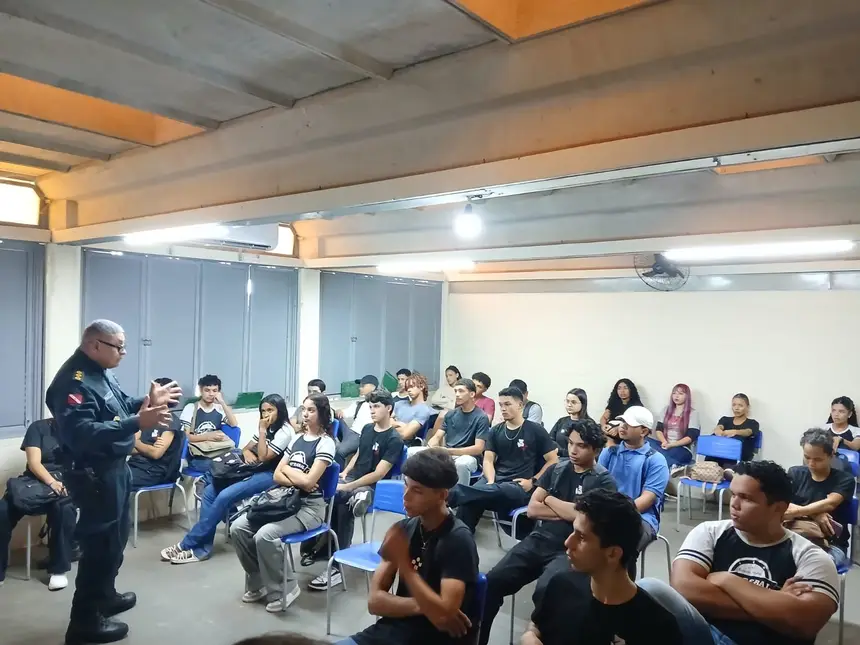
State Coverage - The Safe School Program is present in all Regional Education Directorates (DREs). In the DRE of Marabá, for example, the program maintains fixed policing in 19 schools and carries out actions in all units in the region, including training for staff and lectures for students, parents, and the community.
“We show that everyone has responsibilities in building a safe environment. We also offer fire-fighting and first aid training for school staff,” explained Colonel PM RR Benedito Tobias Sabbá Corrêa, advisor of the DRE of Marabá.
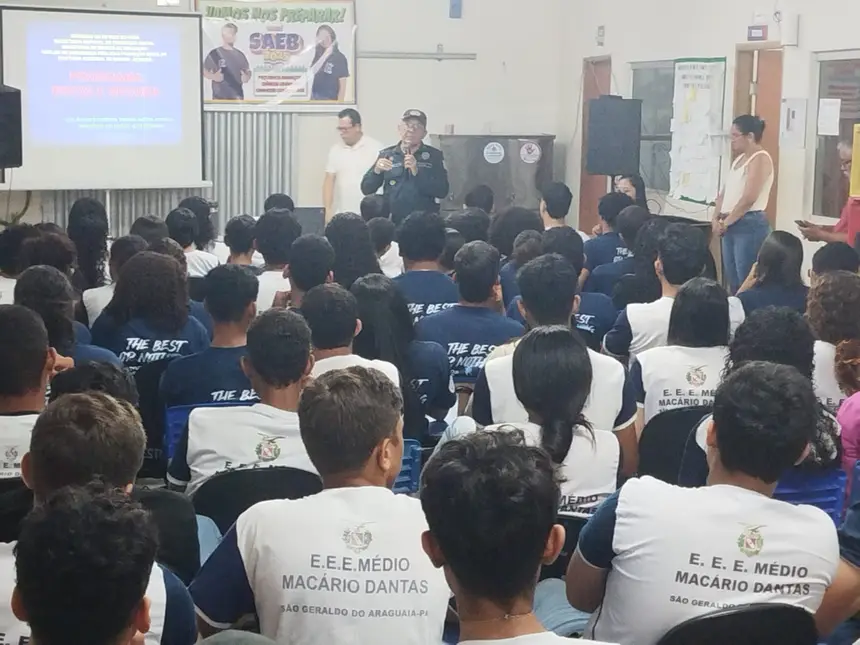
For director Líbana da Cruz, from the State School Lenilson Luiz Miranda, in São Geraldo do Araguaia, the police presence and guidance activities have brought more tranquility:
“The community has noticed the change. The presence of police officers and psychological support has been essential for the safety and well-being of everyone.”
Currently, about 300 schools in the state network have pairs of military police, in addition to support from patrols carried out by area battalions.
Technological Assistance - In addition to on-site actions, Seduc launched this month the School Occurrence System (SOE), a digital tool for recording crimes or infractions in state network units. The system will serve as a basis for planning actions to combat violence in the Safe School Program.
“In addition to registering in the system, it is essential to immediately inform the military police advisor of the DRE, who can guide the completion of the SOE,” emphasized Colonel Bezerra.
Seduc has provided a tutorial and explanatory video for using the tool. In case of doubts, it is possible to open a ticket with the system developer or contact ACE and Nuspe via emails: nusp@seduc.pa.gov.br and convivencia@seduc.pa.gov.br.


